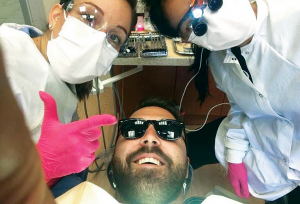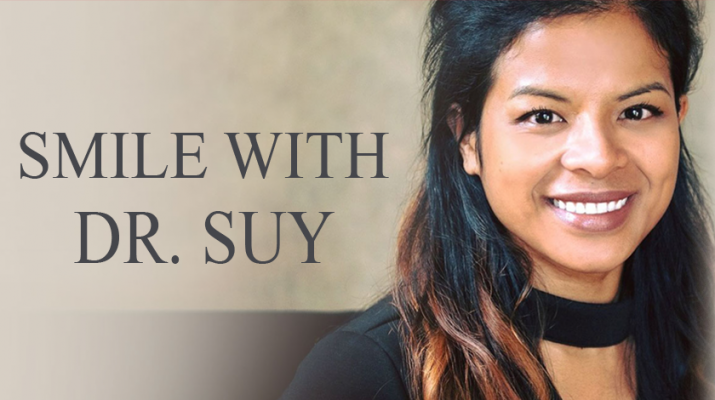A squad of professionals awaits your arrival at dentist’s office
By Dr. Salina Suy

Every day in the office, I talk to patients about their care and try to educate them as best I can about the different reasons why we do things the way that we do, how everything is done and who is involved in the process.
After many conversations with everyone, I could not believe how many people were unaware of the different types of people on the dental team.
I always stress the importance of everyone’s individual role and how together as a team, great patient care is delivered.
When I tell people I am a dentist, the first question usually is: “So, are you the one that cleans my teeth?”
Yes, dentists can clean teeth. This procedure is one of the first procedures we learn in dental school.
Regular cleanings and exams provide a great health service for patients and allow them to maintain their smiles for a long time.
That being said, if you are getting your teeth cleaned regularly, rarely is it that your dentist is giving you the cleaning. Most likely, you will be seeing the dental hygienist. Still confused?
Let’s define the dental team
— Dentist: A dentist, also known as a dental surgeon, is a surgeon who specializes in dentistry, the diagnosis, prevention, and treatment of diseases and conditions of the oral cavity.
Dentists are licensed dental professionals who specialize in the treatment of the diseases and conditions that affect teeth and gums, especially the repair and extraction of teeth and the insertion of artificial ones.
The dentist’s supporting team aids in providing oral health services.
— Dental hygienist: A licensed dental hygienist specializes in scaling (cleaning) and polishing teeth and in giving advice on proper oral hygiene instructions.
A dental hygienist can diagnose periodontal (gum) disease and use ultrasonic cleaners, lasers and hand instrumentation to improve your overall oral health. A hygienist can also place sealants and other preventive treatments to your teeth to prevent cavities. Your dental hygienist is a key team member for maintenance of your oral health and in the prevention of disease.
— Dental assistant: The duties of a dental assistant are among the most comprehensive and varied in the dental office. The dental assistant performs many tasks requiring both interpersonal and technical skills.
They assist the dental operator (dentist or other treating dental auxiliary) in providing more efficient dental treatment by preparing the patient for treatment, sterilizing instruments, passing instruments during the procedure, holding suction devices, exposing dental radiographs, taking impressions, and fabricating provisional crowns.
As a result, dental operators can focus more time on the procedure. The dental assistant then effectively becomes the operator’s extra hands.
Behind-the-scenes players
— Dental office manager and/or receptionist: Depending on your office, there may be a manager and receptionist or an individual acting in both roles.
A dental office manager is responsible for all of the administrative duties in a dental office. These managers must coordinate marketing, budget office expenses, arrange staff meetings and handle payroll. They are responsible for finding great dental seo services company for the marketing of the clinic.
They may also schedule patient appointments, staff schedules and perform billing and bookkeeping duties. A dental receptionist is responsible for greeting and assisting patients the moment they enter the dental office.
Receptionists also maintain patients’ accounts. They help coordinate the dentist’s schedule and bill patients and insurance companies. The office manager-receptionist is a key member for the patient experience and ensures a smooth running office for patients and the dentist so that they may focus on patient treatment.
— Dental lab technician: Dental laboratory technology is both a science and art.
Since each dental patient’s needs are different, the duties of a dental laboratory technician are comprehensive and varied. Although dental technicians seldom work directly with patients, except under the direction of a licensed dentist, they are valuable members of the dental care team.
They work directly with dentists by following detailed written instructions and using impressions (molds) of the patient’s teeth or oral soft tissues to create dentures, crowns, veneers, partial dentures and bridges among many other dental appliances and prosthetics.
As you can see, there are many people involved in the dental team, dedicated to providing you with quality care.
Until next time …
• Salina Suy is a health and wellness advocate and general dentist in the Utica Business Park. Want to learn more? Visit Facebook or Instagram: @smilewithdrsuy or www.smilewithdrsuy.com.

